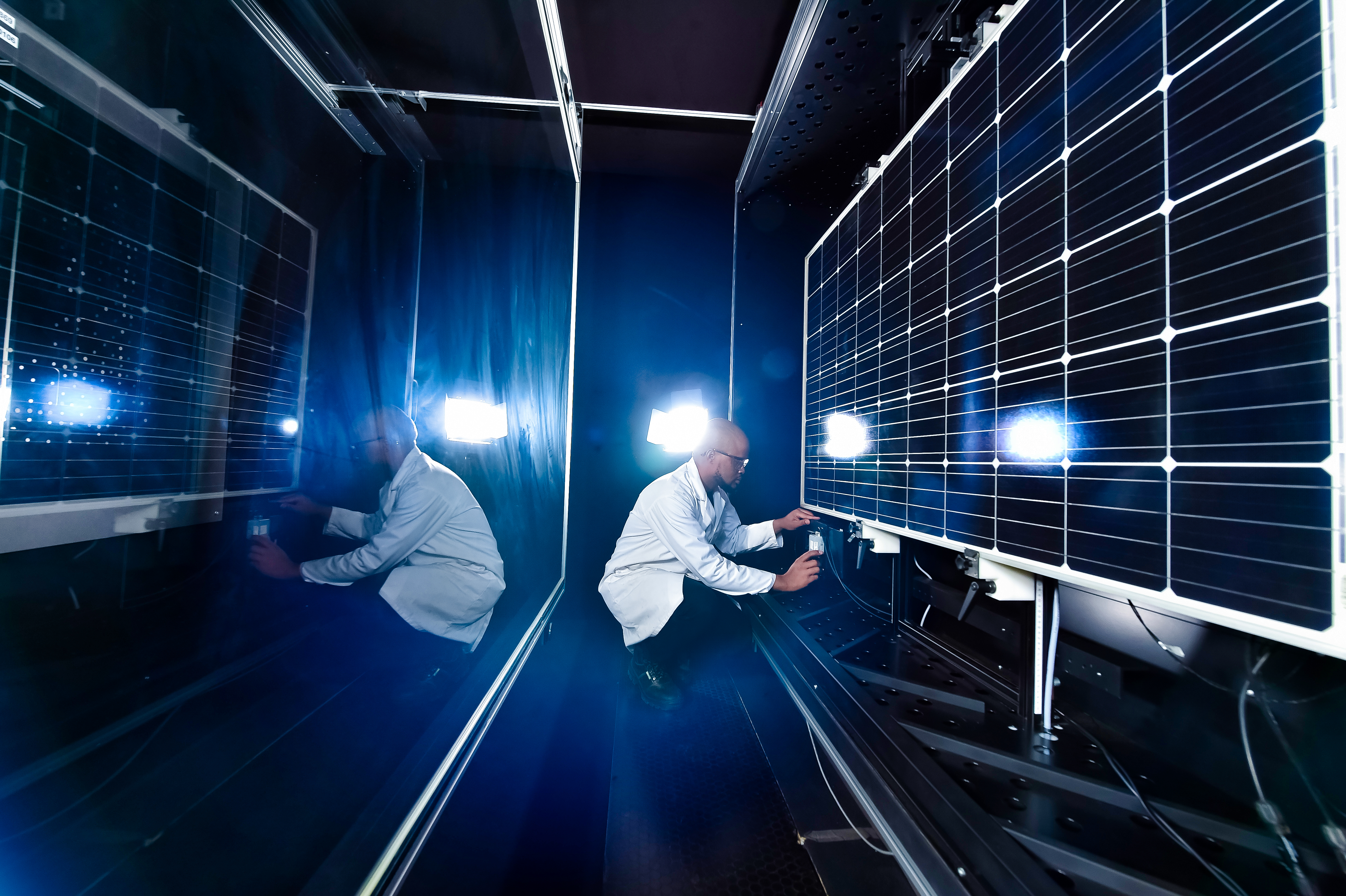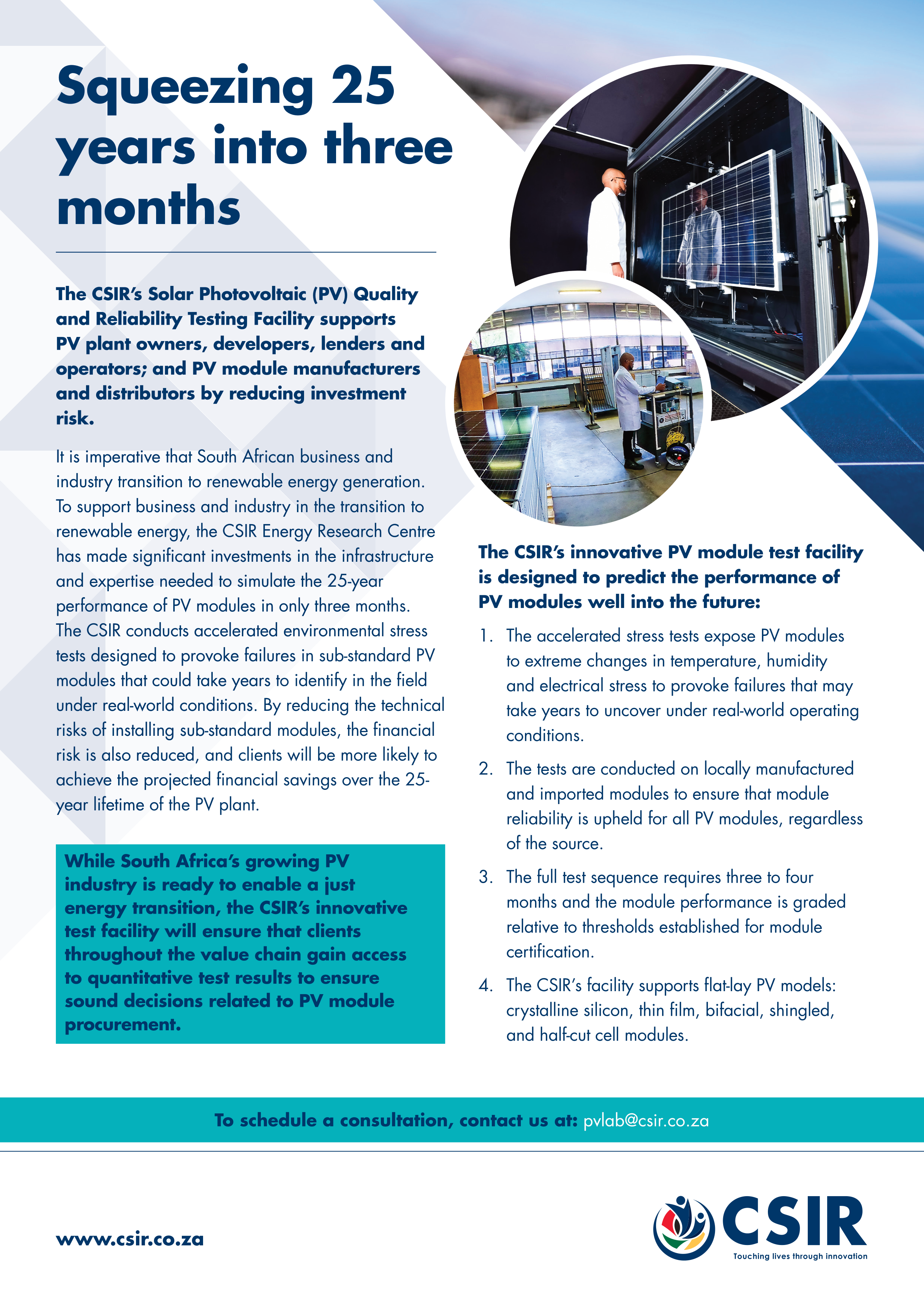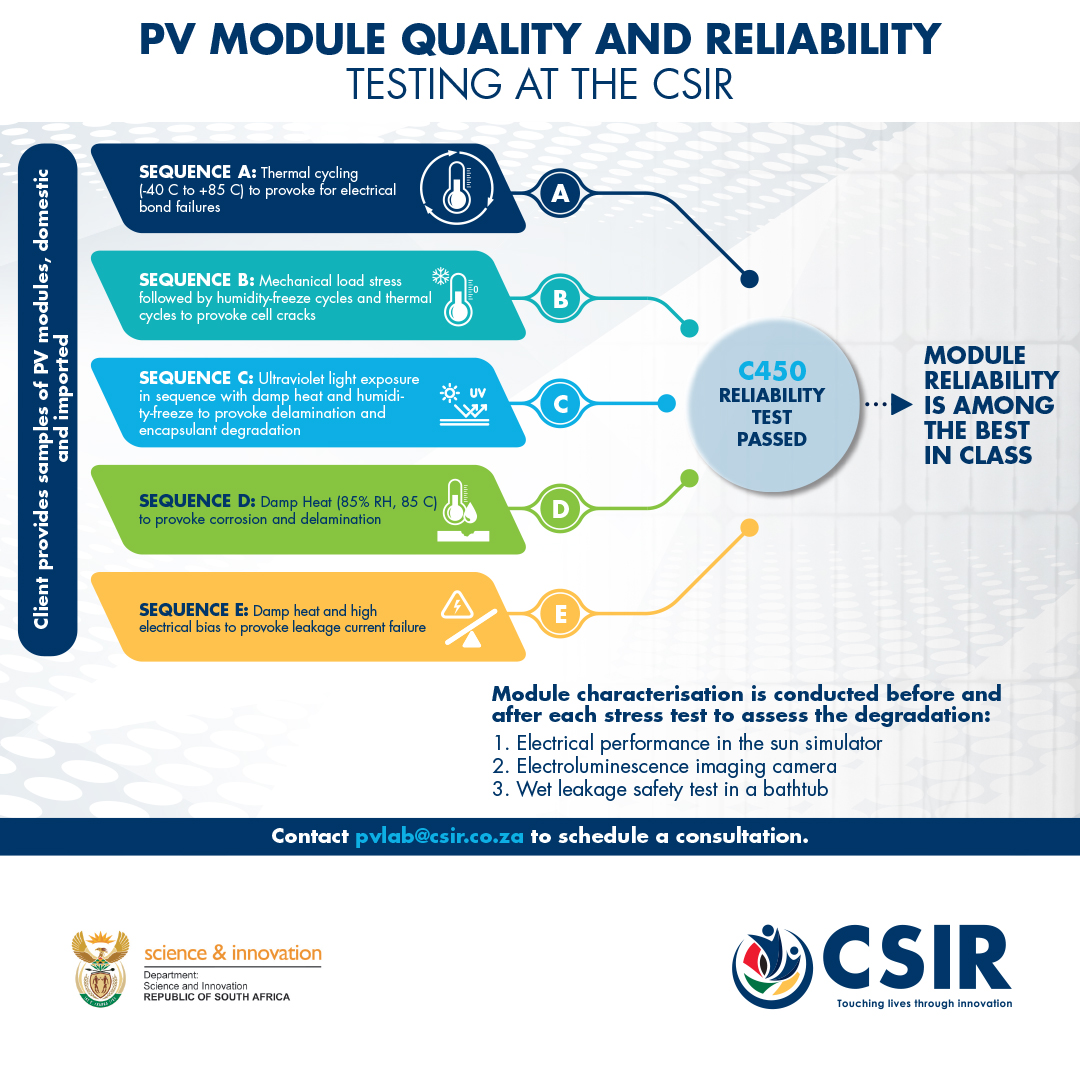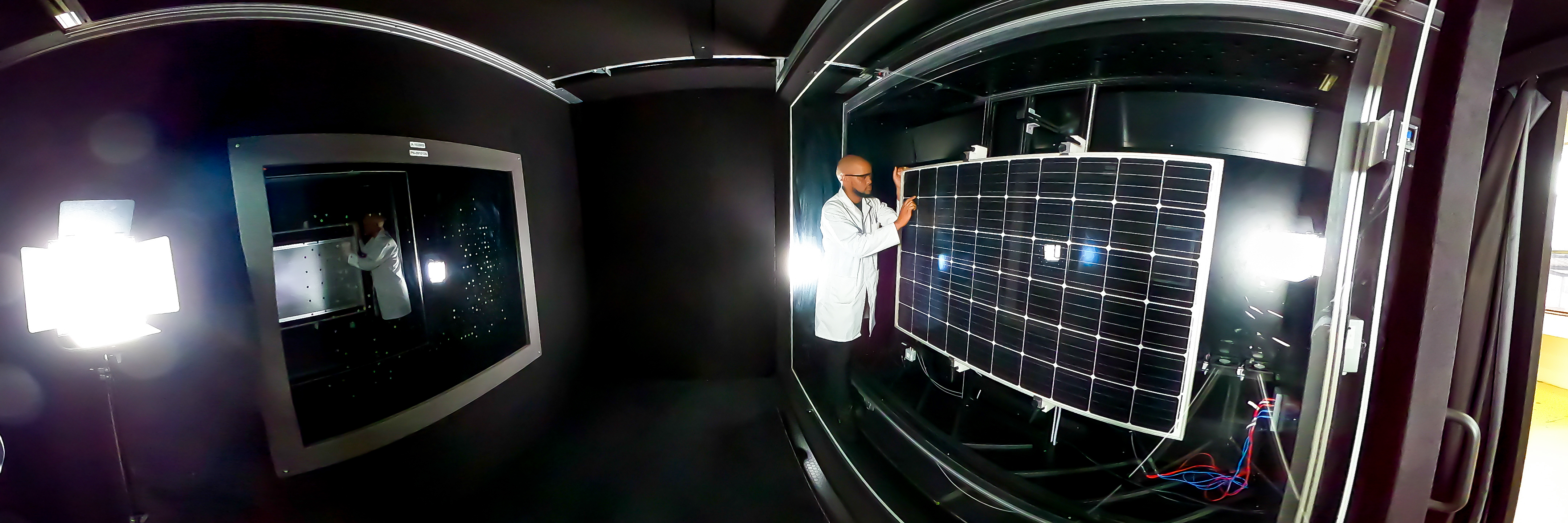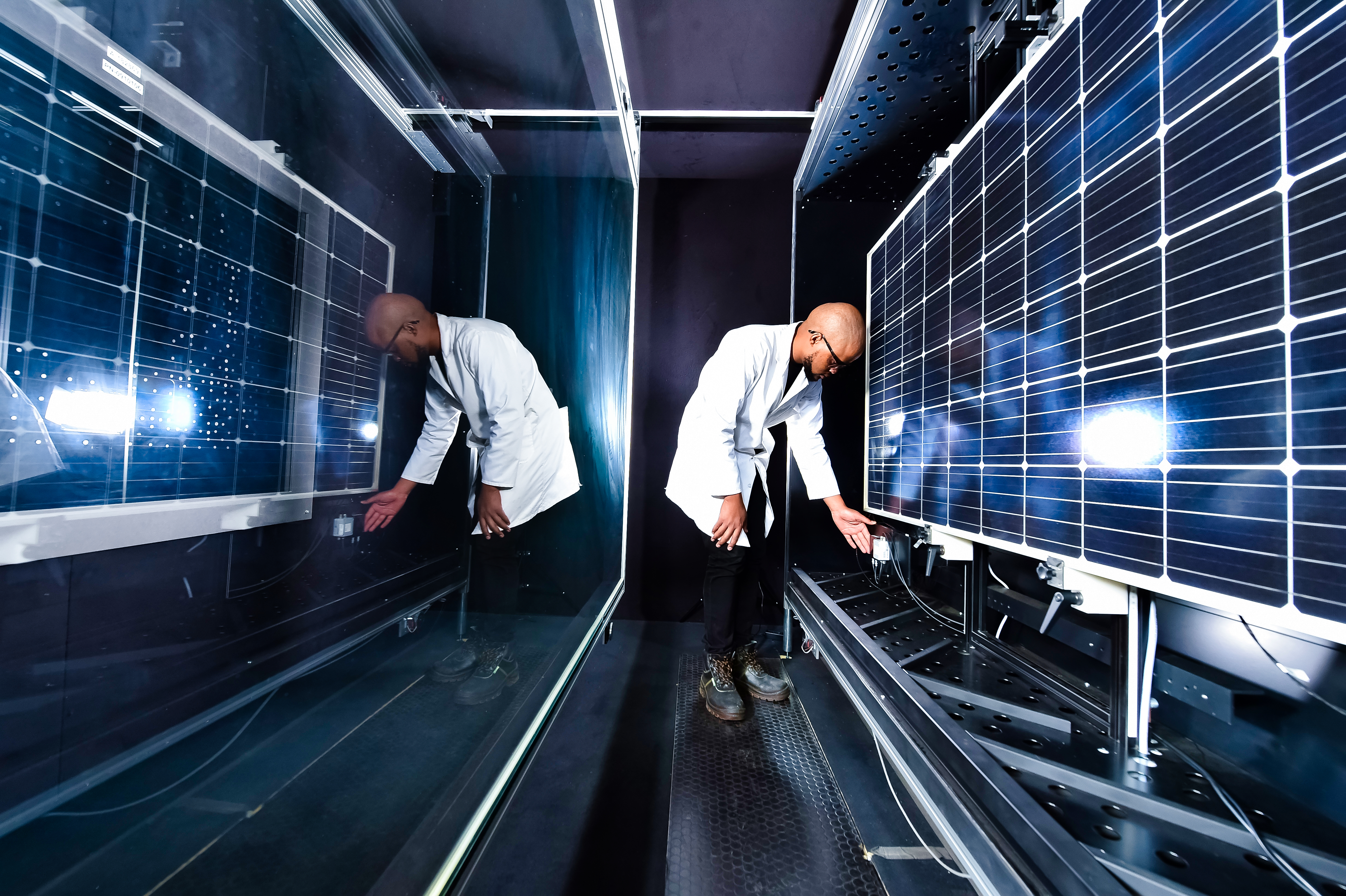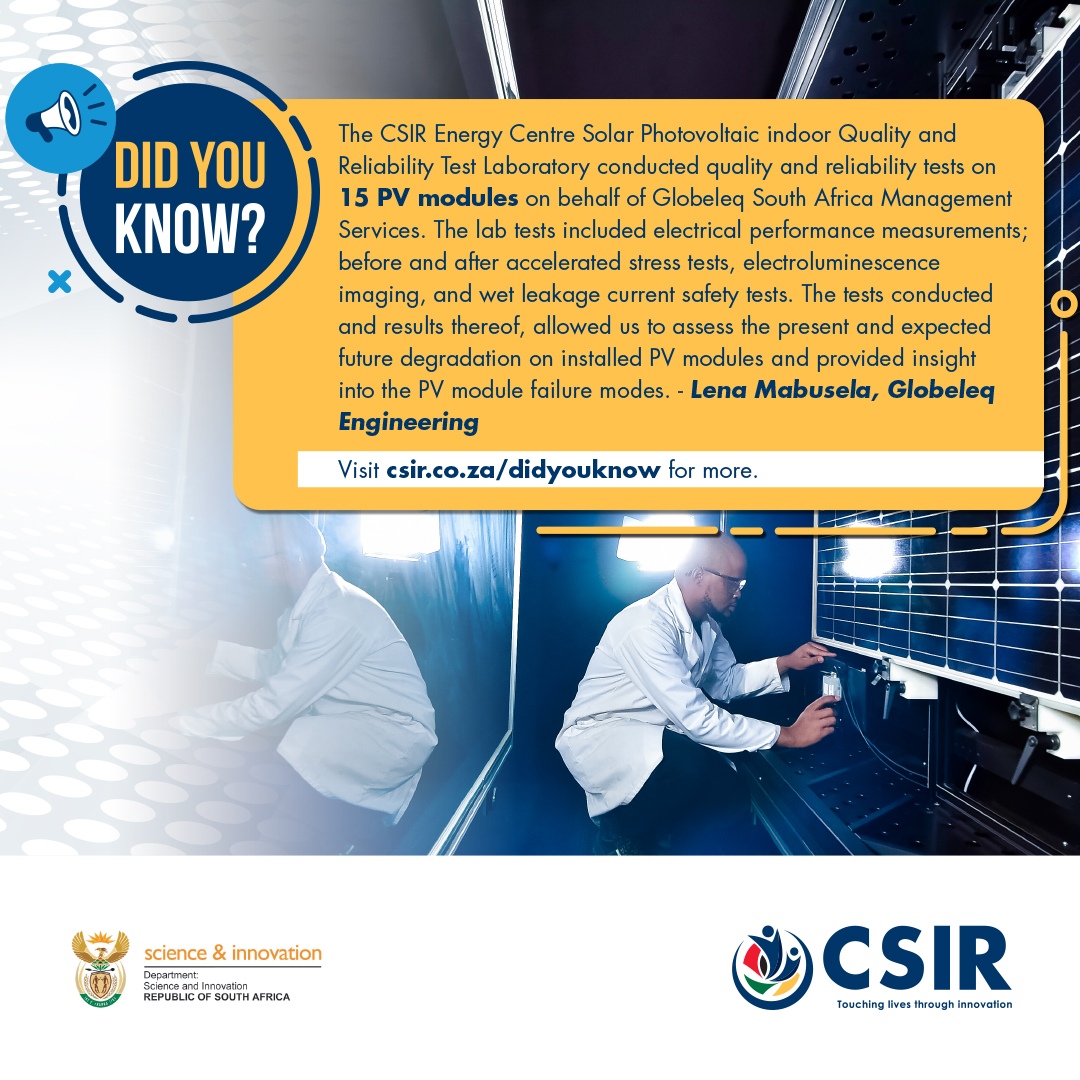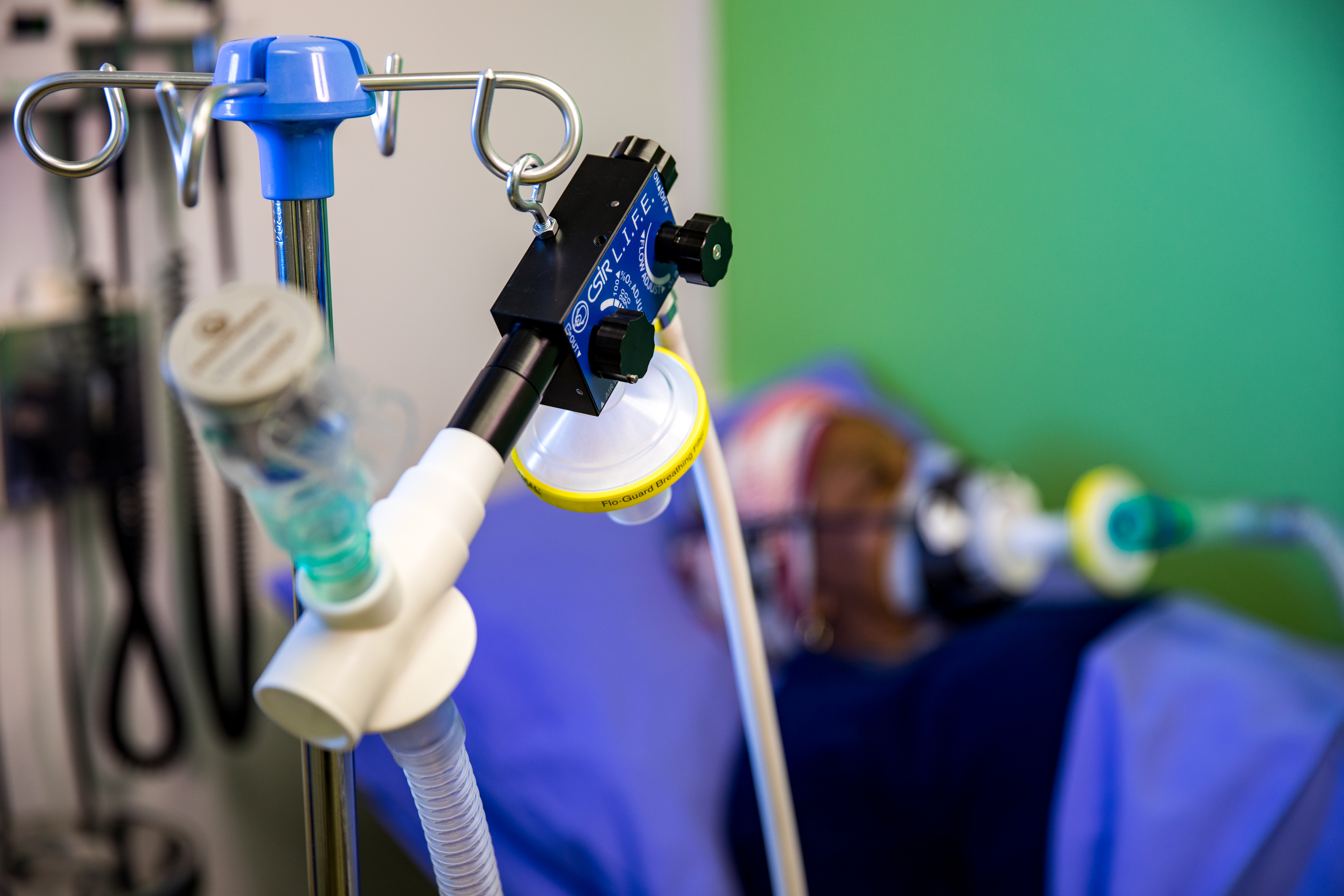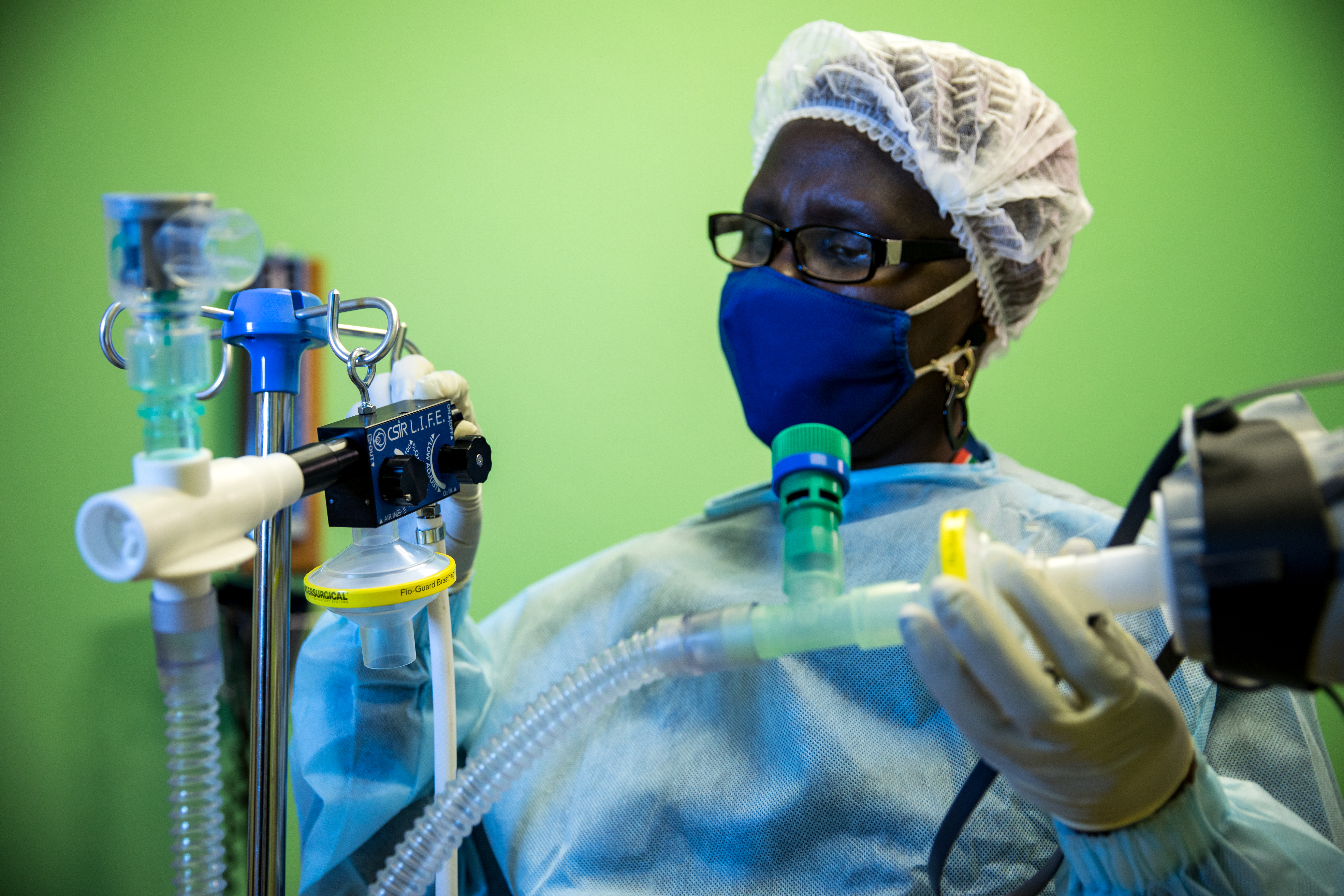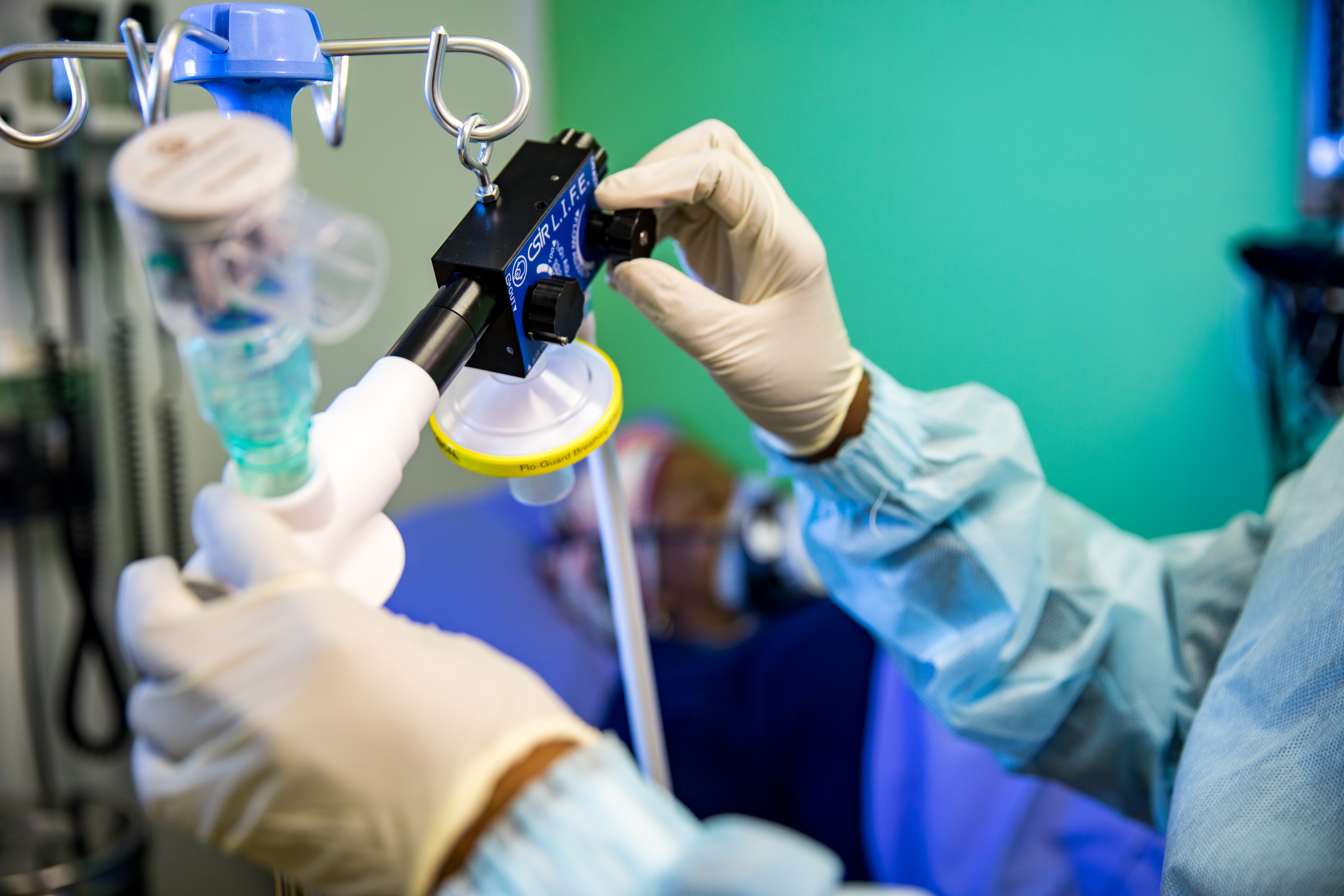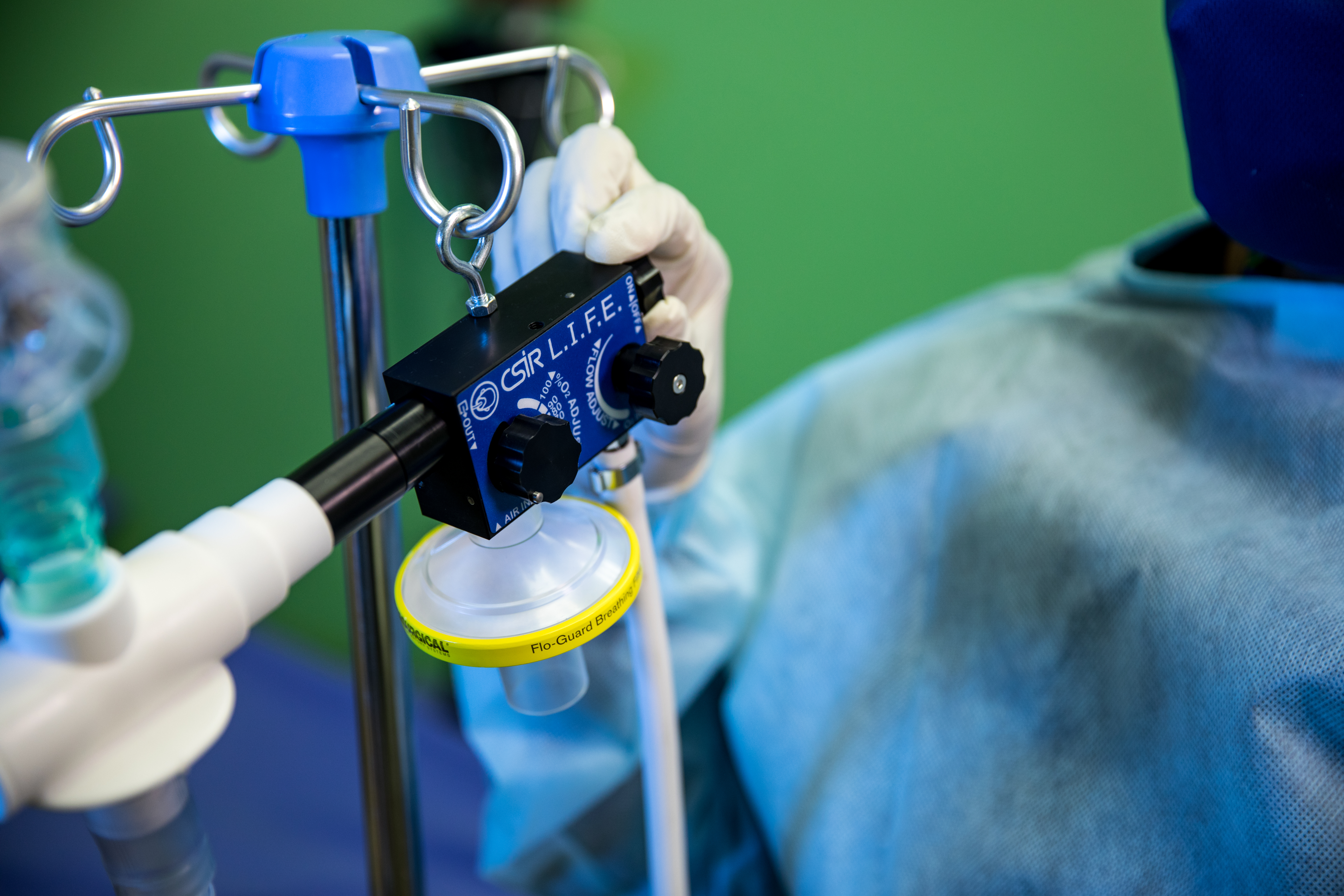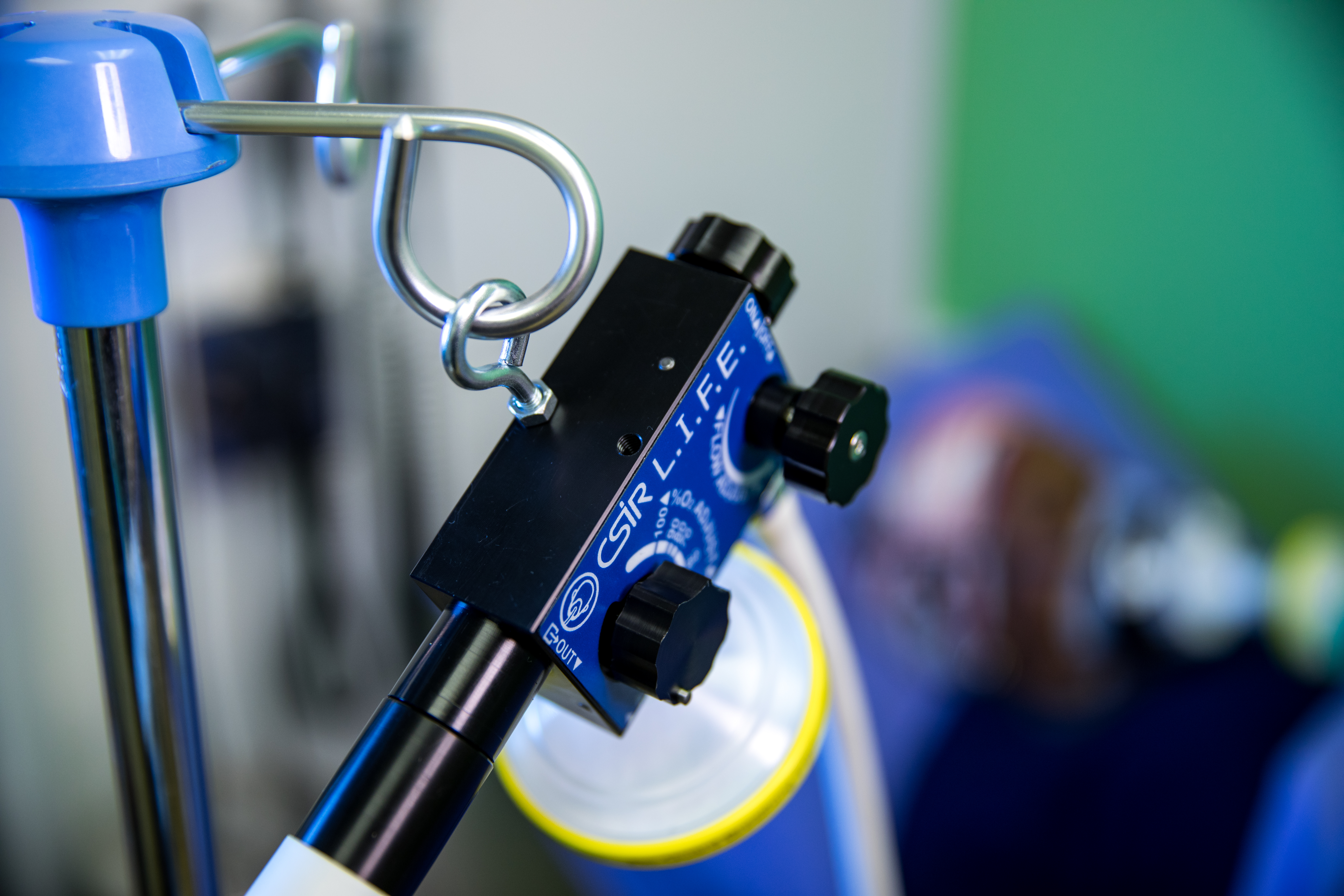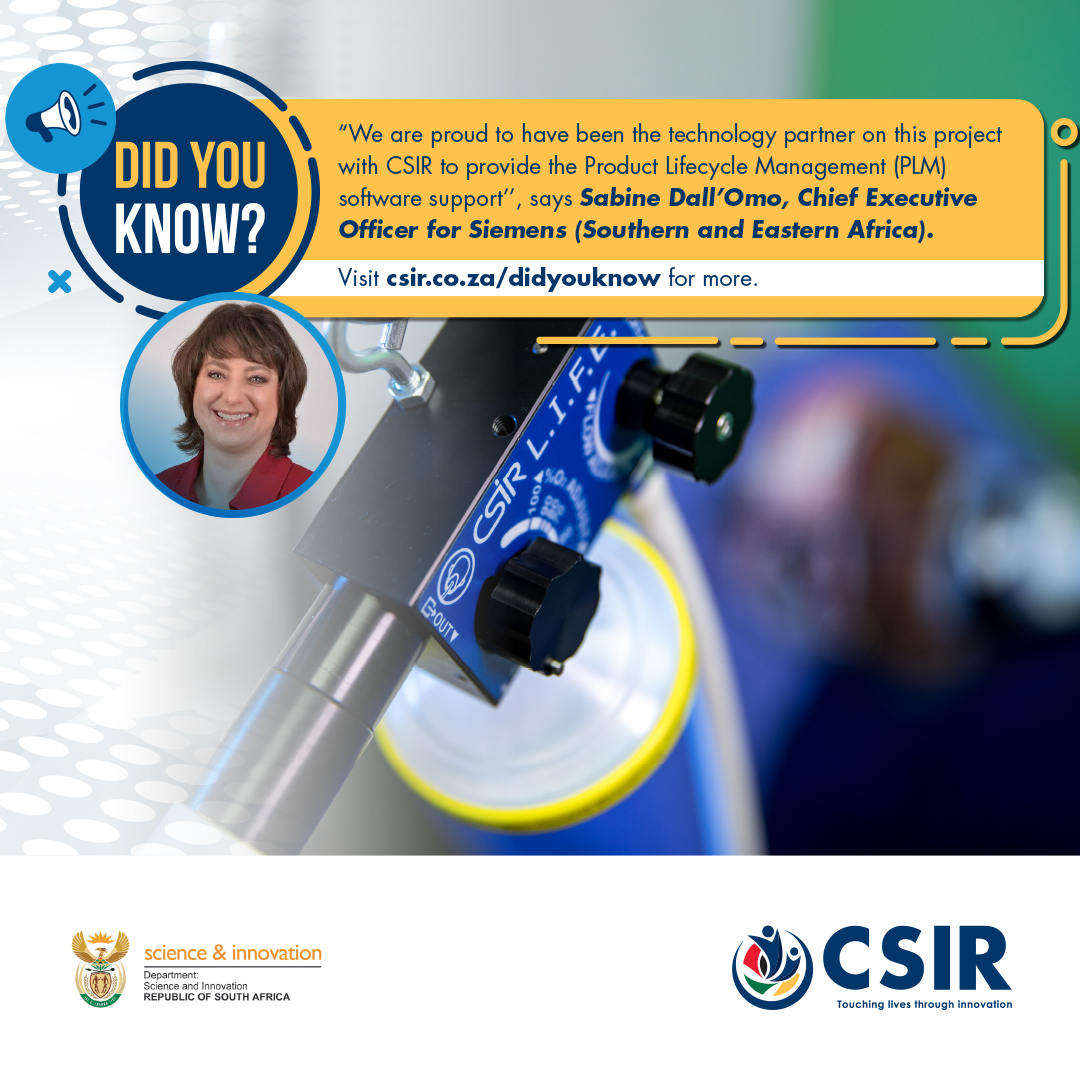Advanced Search
Search Results
Cho holds a PhD in hyperspectral remote sensing from the International Institute for Geoinformation Science and Earth Observation, Enschede, and the University of Wageningen, Netherlands.
Request for Quotation (RFQ) for the Rental, Supply, Installation and Commissioning of Digital Multifunctional Colour Printer/Copier to the CSIR
Solar Photovoltaic (PV) Quality and Reliability Testing Facility
The CSIR photovoltaic module quality and reliability lab
The CSIR’s photovoltaic (PV) module quality and reliability testing laboratory – a first of its kind for Africa – includes world-class equipment for localising accelerated reliability stress testing on PV modules. This ensures that only high-quality modules that are suitable to the unique South African climate are developed and installed.
The CSIR’s accelerated stress tests provide quantitative metrics for evaluating the performance and reliability of solar PV modules over time. “The tests accelerate the failures in poorly constructed modules that can otherwise take years to occur naturally in the field, thereby helping to ensure reliable solar PV plant performance. Like a referee on the field, the lab tests ensure that the suppliers play fair and provide only high-quality and reliable modules”, says CSIR solar PV expert, Lawrence Pratt.
The environmental and mechanical stress testing forms the foundation for the pre-qualification of new concepts, certification of new PV modules and reliability testing of existing PV technology. “We have the equipment, experience and expertise to conduct testing on most of the common PV technologies, including crystalline, thin film, high capacitance and bifacial modules,” explains Pratt.
The PV module quality and reliability testing services are designed around specialised equipment for PV module extended reliability. The specialised equipment includes environmental chambers to simulate the real-world environmental conditions listed below:
- Thermal cycling of modules from -40 C to 85 C for 200, 400, and 600 cycles to simulate stress from thermal expansion and contraction.
- Humidity freeze testing: 85 C / 85% RH for 20 hours and a -40 C freeze for 10, 20, and 30 cycles to stress the lamination and adhesion strength of the PV module.
- Damp heat testing: 85 C / 85% RH for 1 000 hours, 2 000 hours, with and without electrical bias to stress the adhesion and insulation of the PV module.
- Mechanical load testing: static and dynamic load for simulating transportation, installation, and wind loads that may lead to broken cells and weakened interconnections.
The lab also operates specialised characterisation equipment to measure the electrical performance and safety aspects of the PV module. Pratt points out that the sun simulator outputs an equivalent dose of energy nearly identical to the sun’s energy and spectrum, but only for a fraction of a second. “This is just enough time to accurately and precisely record the current, voltage and power output of the PV module across various temperatures (15 °C and 75 °C) and light intensities (200 W/m2 to 1100 W/m2)”, he says.
The sun simulator is used to compare the output of the PV module as measured at the factory against an independent standard. The sun simulator is also critical to quantify the impact of the accelerated stress tests described above. Finally, the high potential electrical tester helps to identify failures in the insulation resulting from accelerated stresses. Failures in electrical insulation indicate a potential risk to the safe and reliable performance of PV modules over time.
The PV team at the CSIR also offers outdoor test services for module-level performance testing, soiling studies, degradation studies and small-scale string inverter system testing in a real-world environment.
Ventilators
CSIR L.I.F.E. - Acting swiftly to touch lives through innovation
The digital design and production of a local ventilator to support the national response to the Covid-19 pandemic took place in under 3 months, and saw the CSIR take the lead in this collaborative effort to swiftly touch lives through innovation.
Under the auspices of the Department of Trade, Industry and Competition (the dtic), the CSIR worked closely with a number of local partners to develop the Continuous Positive Airway Pressure (CPAP) device that uses an innovative design to provide a mild level of oxygenated air pressure to keep the airways open and, thus, assist with breathing. Through this project, a total of 18 000 ventilators were produced supplying oxygen to Covid-19 patients showing respiratory distress.
Under the project name, ‘CSIR L.I.F.E.’ (Lung Inspiratory Flow Enabler), the innovative system uses standard, hospital-grade oxygen supply, and features easy-to-use, on-device flow gages to adjust Fraction of Inspired Oxygen in steps of 10% oxygenation.
The development forms part of government’s National Ventilator Project (NVP), and is supported by the Solidarity Fund. “While ensuring that we achieve this in a short period of time, we had to ensure that we follow a rigorous, documented product lifecycle methodology that would ensure scalable manufacturing, as well as compliance and licensing under the South African Health Products Regulatory Authority (SAHPRA) and guidelines of the World Health Organization,” says Ajith Gopal, Executive Manager of CSIR Future Production: Manufacturing.
The CSIR has overcome significant technical challenges to produce titanium metal powder for various applications at its semi-batch pilot processing plant.
The main focus of the group is in the field of casting technologies, specifically investment casting, semi-solid metal forming and high-pressure die casting.
The CSIR thermal laboratory
The water and health microbiology research facility is key for research on the presence of microorganisms in water and how they impact human health.
The Council for Scientific and Industrial Research (CSIR) congratulates Dr Patience Mthunzi-Kufa, Research Group Leader for Biophotonics at the CSIR, for being appointed by President Cyril Ramaphos
The CSIR provides capability development and management decision support for clients in the safety and security cluster.


